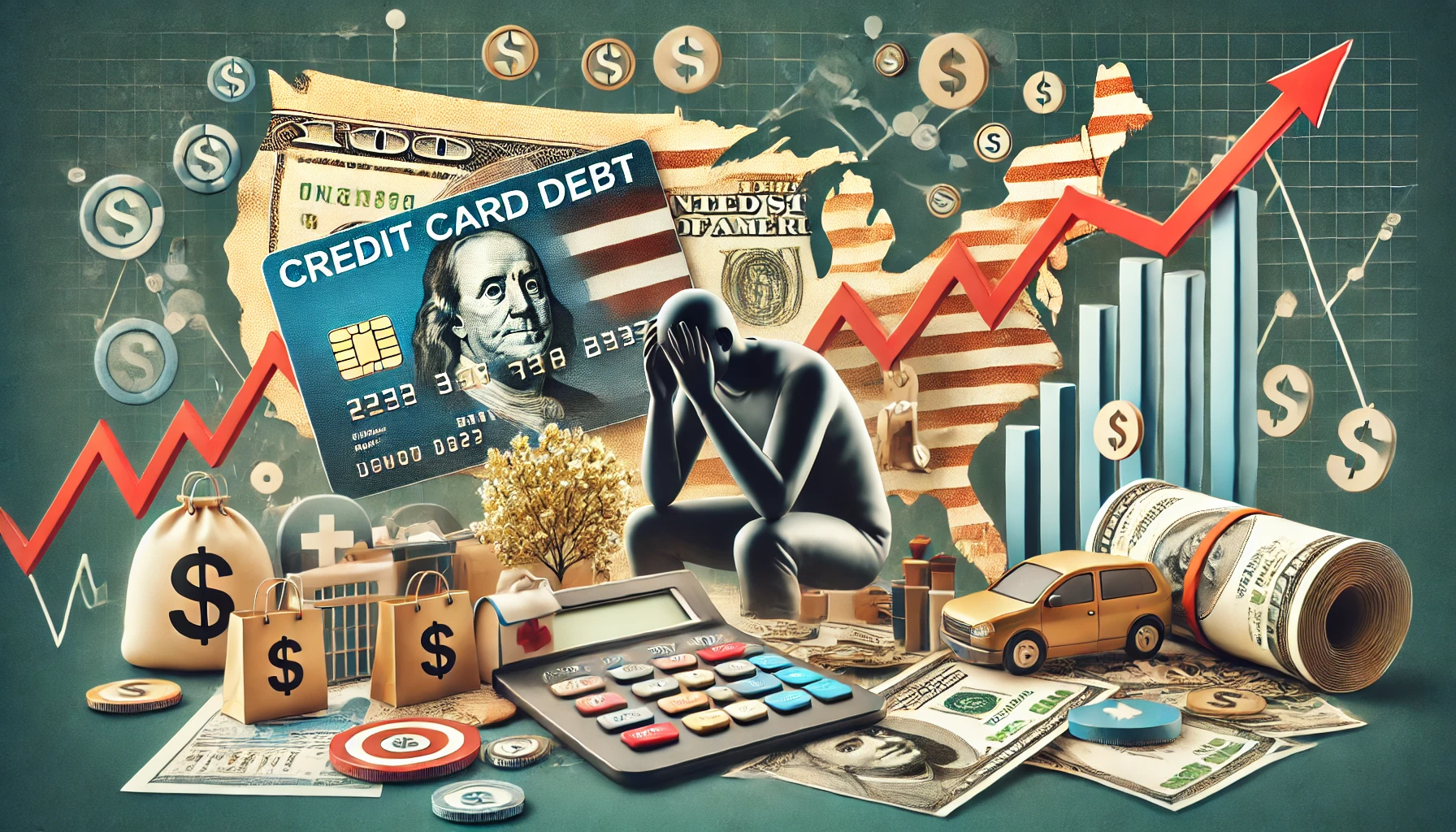Credit Card Debt in America: Causes, Consequences, and Pathways to Financial Stability
The research examines the historical development, causes, and consequences of credit card debt in the US, highlighting its effects on individuals and the economy, and recommending strategies for debt management and financial stability. It underscores the need for financial education, responsible credit card use, and policy reforms to mitigate economic risks and promote consumer well-being.

A study by Mayowa Akinwande et al., affiliated with institutions including Austin Peay State University, University of Lagos, and American Express, offers an in-depth examination of credit card debt in the United States, exploring its historical development, causes, consequences, and broader economic implications. The paper traces the evolution of credit cards from their early days as merchant-specific tools to their current status as ubiquitous financial instruments. This transformation was significantly influenced by legal changes, notably the Marquette decision in 1978, which allowed banks to charge interest rates based on their chartering state, leading to a competitive environment that attracted credit card issuers and resulted in increased credit card debt.
The Roots of Credit Card Debt: A Historical Perspective
The authors identify several key factors contributing to the rise in credit card debt, including economic instability, high healthcare costs, consumerism, and financial illiteracy. Economic downturns, such as the 2008 financial crisis and the COVID-19 pandemic, exacerbated the situation by causing job losses and reduced income, prompting individuals to rely more heavily on credit cards to cover essential expenses. Additionally, the high cost of healthcare in the US often forces individuals to use credit cards to pay for medical treatments and emergencies, further driving up debt levels. The culture of consumerism prevalent in the US also plays a significant role, encouraging overspending and the use of credit cards to maintain lifestyles beyond one's financial means.
Personal Costs of Plastic: The Impact on Individuals
The consequences of credit card debt for individuals are severe and multifaceted. High levels of debt can negatively impact financial well-being, credit scores, and savings, and even lead to mental and physical health issues. Individuals burdened by debt often experience financial stress, which can strain personal relationships and limit opportunities for financial growth. The paper emphasizes that financial illiteracy is a major contributing factor, as many Americans lack the knowledge necessary to manage credit cards responsibly.
Economic Powerhouse or Pitfall? Credit Cards and the U.S. Economy
On a larger scale, credit cards have a significant impact on the US economy. They stimulate consumer spending, drive the growth of e-commerce, and generate substantial revenue for financial institutions through fees and interest charges. For example, JPMorgan Chase, one of the largest credit card issuers in the US, reported credit card revenue of 36.4 billion dollars in 2020, illustrating the financial sector's reliance on credit card-related income. However, the misuse of credit cards can lead to economic instability, as seen during the 2008 financial crisis, when high levels of credit card debt contributed to the economic downturn.
Strategies for Success: Managing and Preventing Debt
The authors stress the importance of responsible credit card management and propose several strategies to prevent and manage credit card debt. These include improving financial education and literacy to help individuals understand how credit cards work, creating and adhering to budgets, establishing emergency savings funds to cover unexpected expenses, and using credit cards responsibly by paying bills on time and in full. They also recommend reducing the number of credit cards one possesses, choosing cards with lower interest rates, regularly monitoring credit card statements for unauthorized charges, and seeking professional financial counseling when necessary.
Future Directions: Research and Policy for Financial Stability
Empirical studies cited in the paper support the relationship between credit card debt and factors such as financial literacy and consumer behavior. For instance, regression analysis reveals a positive correlation between credit card debt and both personal consumption and GDP, indicating that while credit card debt can drive economic growth, it must be managed responsibly to prevent negative consequences. The study concludes with a call for comprehensive strategies to address the challenges of credit card debt while maximizing the benefits of credit card usage. These recommendations include enhancing financial education programs, promoting responsible credit card use, implementing policy reforms to protect consumers, and conducting ongoing research to understand credit card debt dynamics. Public awareness campaigns and collaboration among stakeholders are also seen as essential components of addressing credit card debt challenges. The goal is to transform credit cards into tools that empower individuals financially and contribute to economic stability, rather than sources of financial stress. Future research should include an extended longitudinal study to capture recent economic changes and analyze how emerging financial trends and evolving consumer behaviors impact credit card debt, GDP, and personal consumption. This approach would provide critical insights into the lasting effects of economic crises on credit card dynamics and offer a real-time understanding of the post-pandemic financial landscape. By understanding the causes and consequences of credit card debt, individuals and policymakers can make informed decisions to promote financial well-being and economic stability.
- FIRST PUBLISHED IN:
- Devdiscourse










